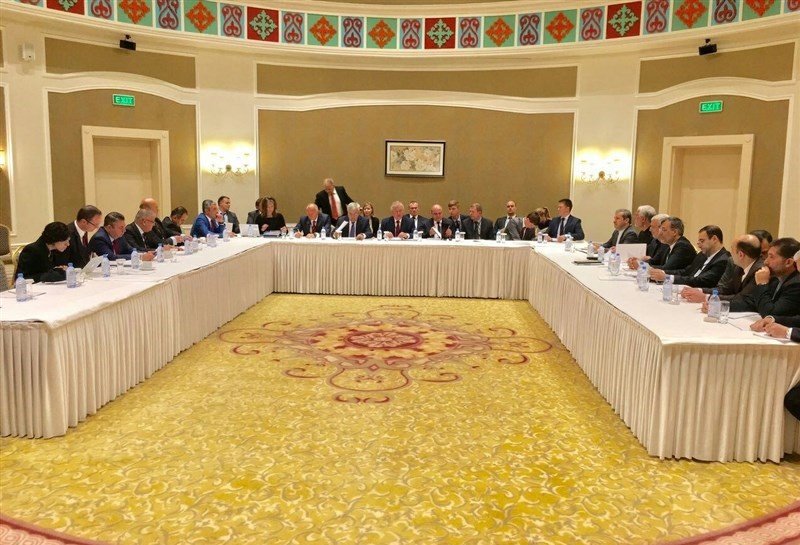Russia, Turkey, Iran agree on Idlib safe zone in Syria

TEHRAN -- Russia, Turkey and Iran have agreed on all four safe zones in Syria, including on the Idlib de-escalation area, the Kazakh Foreign Ministry confirmed after a joint statement on Friday, Sputnik reported.
The three sides discussed details of the agreement at meetings in Astana, the capital of Kazakhstan.
The statement said the creation of safe zones is a temporary measure.
Iran, Russia, and Turkey who initiated the talks between the Syrian government and the opposition are guarantors of the ceasefire.
“[The guarantor states] emphasize again that the creation of the de-escalation areas and security zones is a temporary measure the duration of which will initially be 6 months and will be automatically extended on the basis of consensus of the guarantors,” the statement read.
Moreover, according to the statement, the guarantor states decided to “form Joint Iranian-Russian-Turkish Coordination Center aimed at coordinating activities of de-escalation control forces in the de-escalation areas.”
The three-hour session was attended by Iranian Deputy Foreign Minister for Arab and African Affairs Hossein Jaberi Ansari, Putin’s special envoy on Syrian Affairs Alexander Lavrentiev as well as Sedat Onal, the head of Turkey’s mission to the Astana Talks.
On the sidelines of the Astana talks, Jaberi Ansari also met with Bashar Jaafari, the permanent representative of the Syrian Arab Republic to the United Nations who represents the Syrian government in the Astana talks.
"[Russia, Turkey and Iran] emphasize the need for the conflicting parties to take confidence-building measures, including the release of detainees/abductees and the handover of the bodies as well as identification of missing persons, to create better conditions for the political process and lasting ceasefire,” the Astana statement concluded.
Earlier in the day, a source in one of the delegations said that Russian and Iranian forces will monitor areas controlled by the government side in the Idlib safe zone, while the Turkish forces will be involved in monitoring the opposition there.
The results of the sixth round of the Astana talks may be considered at the UN Security Council, the top Iranian diplomat to the talks said after a joint statement with Russia and Turkey was released.
So far, three zones of de-escalation have been established in Syria: in the south along the border with Jordan, in Eastern Ghouta and to the north of Homs, while negotiations on the fourth de-escalation zone in Idlib province were held since summer and were the main issue on the agenda at the Astana-6 talks, which concluded on Friday.
Commenting on the creation of a de-escalation zone, Turkish President Recep Tayyip Erdogan said earlier this week that Ankara-Moscow relations are not challenged by any controversies over the jointly secured de-escalation process. Russian Foreign Minister Sergei Lavrov earlier noted progress on the issue, while previously he said that there had been difficulties with regard to the creation of the de-escalation zone.
The creation of the Idlib safe zone has been especially crucial due to the fact that around 9,000 terrorists of the Jabhat Fateh al-Sham (formerly known as al-Nusra Front) group were attempting to take control of Idlib, according to the Russian Defense Ministry. A member of the armed opposition delegation at Syria settlement talks told Sputnik in August that the de-escalation zone's establishment could be hampered by terrorists.
The memorandum on the establishment of four de-escalation zones in the war-torn country was signed during the fourth Syrian settlement talks in Kazakhstan in May, with Russia, Iran and Turkey acting as the guarantors of the ceasefire.
SP/PA
Leave a Comment